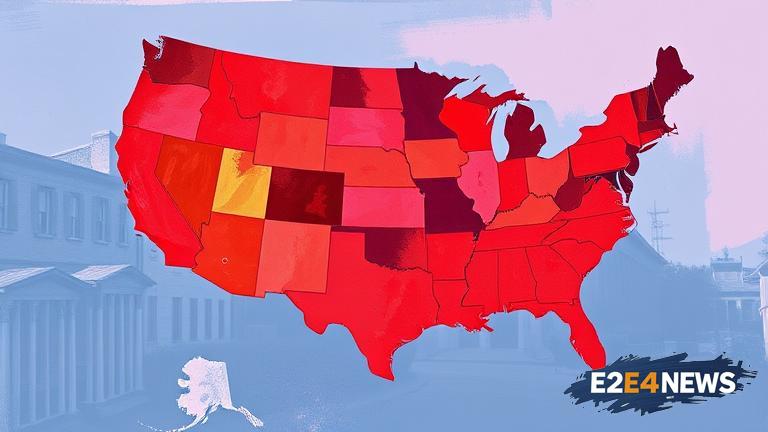The recent redistricting move in Texas has sent shockwaves throughout the country, with many experts warning of a potential ripple effect that could influence elections in other states. The move, which was approved by the Texas Legislature, aims to redraw the state’s congressional districts in a way that is expected to favor Republican candidates. However, critics argue that the move is a blatant attempt to gerrymander the state’s electoral map and disenfranchise minority voters. The redistricting plan has been met with fierce opposition from Democrats and civil rights groups, who claim that it violates the Voting Rights Act and will lead to a decrease in representation for minority communities. Despite the controversy, the plan is expected to be signed into law by Texas Governor Greg Abbott, who has been a strong supporter of the redistricting effort. The move has also sparked concerns about its potential impact on the national political landscape, with some experts warning that it could influence elections in other states, including California. California, which has a large and diverse population, is seen as a key battleground state in the upcoming elections, and any changes to the electoral map could have significant implications for the outcome. The redistricting move in Texas has also raised concerns about the potential for other states to follow suit, which could lead to a nationwide shift in the balance of power. Some experts have warned that the move could lead to a decrease in representation for minority communities and an increase in partisan gerrymandering, which could have significant implications for the democratic process. The controversy surrounding the redistricting move in Texas has also highlighted the need for electoral reform and the importance of protecting voting rights. Many experts have called for the implementation of independent redistricting commissions, which would help to reduce the influence of partisan politics on the electoral map. Others have argued that the move highlights the need for greater transparency and accountability in the redistricting process, which is often shrouded in secrecy and influenced by special interest groups. The redistricting move in Texas has also sparked a heated debate about the role of the federal government in protecting voting rights. Some experts have argued that the federal government has a responsibility to intervene in cases where states are attempting to disenfranchise minority voters, while others have argued that the issue is best left to the states to decide. The controversy surrounding the redistricting move in Texas is likely to continue in the coming weeks and months, with many experts predicting that the issue will ultimately end up in the courts. The move has also sparked concerns about the potential impact on the 2022 midterm elections, which are expected to be highly contested. Some experts have warned that the redistricting move could lead to a decrease in voter turnout, particularly among minority communities, which could have significant implications for the outcome of the elections. The redistricting move in Texas has also highlighted the need for greater civic engagement and participation in the electoral process. Many experts have argued that voters need to be more aware of the issues and more engaged in the process in order to protect their rights and ensure that their voices are heard. The controversy surrounding the redistricting move in Texas is a complex and multifaceted issue, with many different perspectives and opinions. However, one thing is clear: the move has significant implications for the national political landscape and highlights the need for electoral reform and greater protection of voting rights. The redistricting move in Texas is a reminder that the democratic process is not always fair or equitable, and that there is a need for greater transparency and accountability in the electoral process. The move has also sparked concerns about the potential impact on the balance of power in Congress, with some experts warning that it could lead to a shift in the balance of power towards the Republican Party. The controversy surrounding the redistricting move in Texas is likely to continue in the coming weeks and months, with many experts predicting that the issue will ultimately end up in the courts. The move has also sparked concerns about the potential impact on the 2024 presidential election, which is expected to be highly contested. Some experts have warned that the redistricting move could lead to a decrease in voter turnout, particularly among minority communities, which could have significant implications for the outcome of the election.





